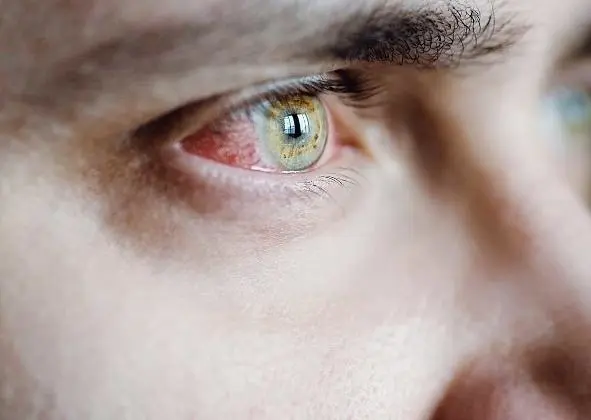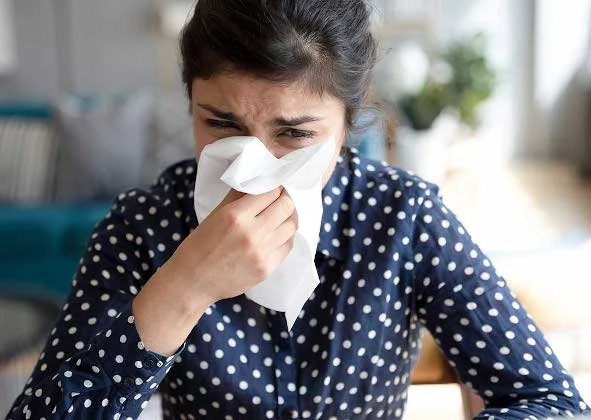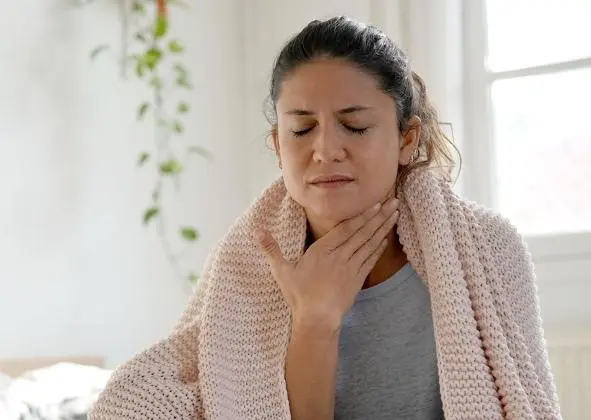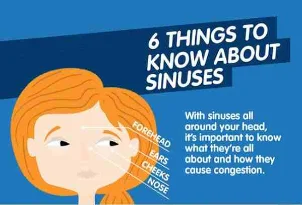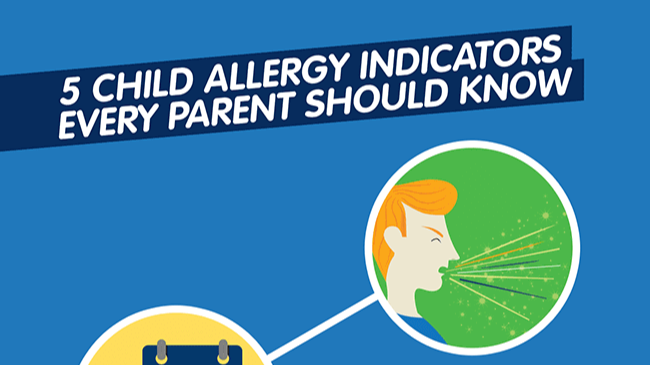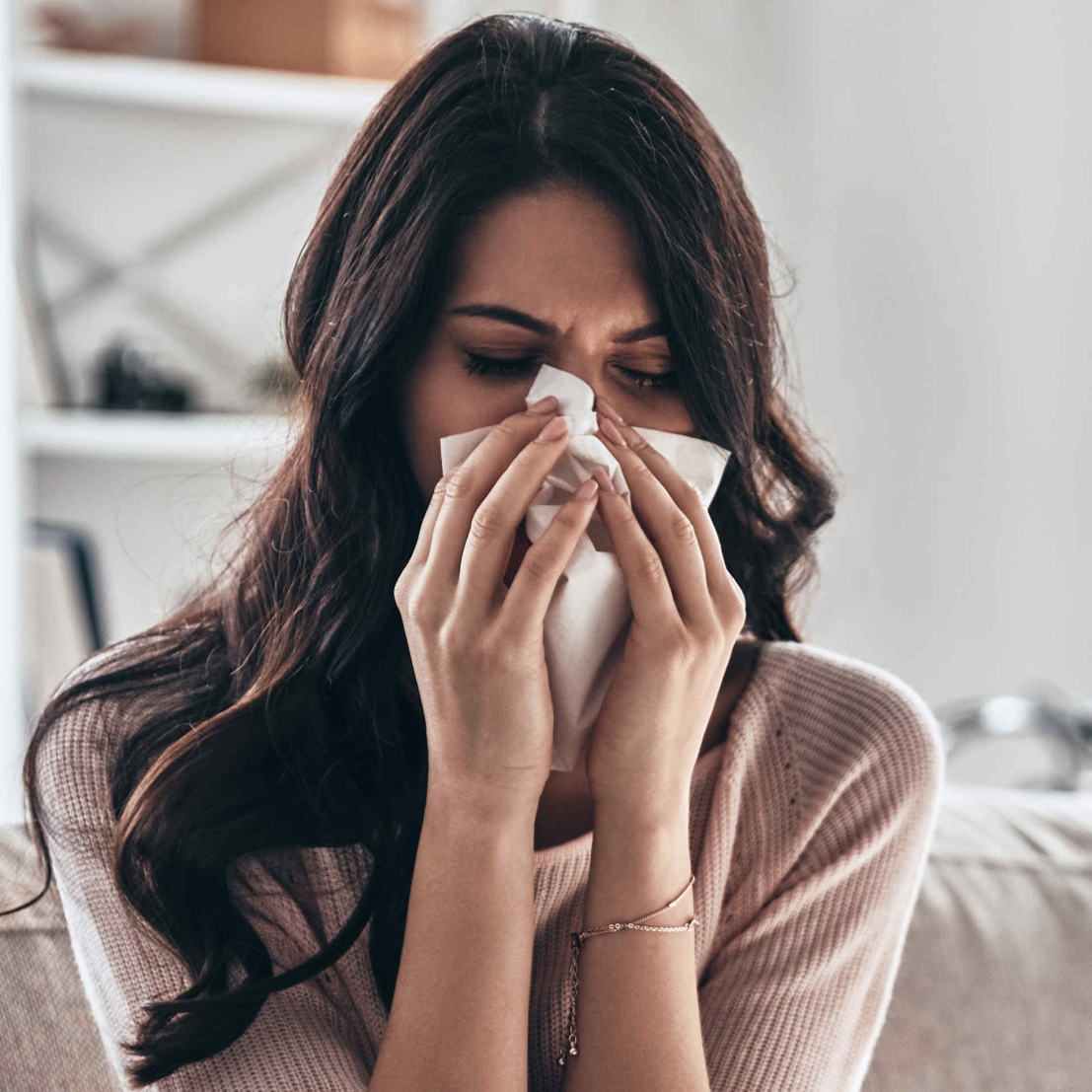What Are Allergies?
Allergies occur as a result of exposure to specific airborne particles, known as allergens, which trigger an overactive response by your body's immune system to certain substances like dust mites or pollen. 2
The immune system has the important function of identifying and fighting harmful intruders like viruses and bacteria. Although dust mites and pollen are different, the immune system may react to them in a similar manner. This means that encountering either substance can cause an immune system response resulting in symptoms such as congestion or itchy eyes.2
Some common allergens (substances that trigger an allergic reaction) are:3,4
Grass
Trees
Weeds
Dust mites
Pet dander
Mold
Allergens can also be personalized, meaning you might be allergic to something that isn't common, like a fragrance or a chemical.5
Symptoms of an Allergy
Some common symptoms of an allergy include:6
Itchy eyes
Sneezing
Runny nose
Stuffy nose
There are some ways allergies are different than colds too. For example, an allergy isn't contagious but colds are.7
What Is a Cold?
The common cold is a viral infection of part or of all of the upper respiratory system. For example, a cold may be due to a viral infection in your nose or to sinuses.2
Unlike allergies, which are caused by a reaction to allergens, colds are contagious and can spread from person to person. For example, if someone who has a cold sneezes near you, you can catch the virus and become infected.2
Common cold symptoms include:2
Runny nose
Sore throat
Cough
Headache
Body aches
Sneezing
Fatigue
You may also run a fever with a cold, which is something that you won't have with allergies.6 A cold will typically last about a week or two.8
Allergies vs Cold – Similarities and Differences
Although colds and allergies are very similar, some symptoms are different.6
Symptoms | Allergies | Cold |
|---|---|---|
Runny Nose | Yes | Yes |
Coughing | Rarely | Yes |
Sneezing | Yes | Yes |
Sore throat | Rarely | Yes |
Stuffy nose | Yes | Yes |
Watery eyes | Yes | Yes |
Itchy eyes | Yes | No |
Fever | No | Yes |
Body aches | No | Yes |
It is always a good idea to talk to your doctor if you feel unwell.
Tips That May Help to Relieve/Prevent Cold Symptoms
There are some things you can do at home that can help you feel better if you have a cold. Starting with bed rest. This is an important way to recharge your body's immune system so it can better fight off the infection.9 Here are some tips that may help you to relieve/prevent cold symptoms:
Drink plenty of warm fluids as liquids can help soothe a sore throat and help ease congestion.9
Gargle with salt water to help ease pain and swelling in the throat.9
Use a humidifier or place a bowl of water near a heat source to add moisture to the air.9
Practice good hand hygiene and stay away from people as much as possible as this will help keep you from spreading the virus.10
Over-the-counter medications like TYLENOL® Complete Cold, Cough & Flu Plus Mucus Relief Liquid Gels can help ease discomfort by helping to relieve congestion, sore throat pain, and other cold symptoms.
Tips That May Help to Prevent/Relieve Allergy Symptoms
The most productive way to deal with allergies is to know what you are allergic to and avoid it. Other tips which may help include:11
Stay inside if you are allergic to pollen, especially on windy days.
Shower and change clothing when you come in from being outdoors.
If you need to be outside, to work in the garden, for example, wear a face mask.
Close doors and windows even at night.
Clean floors often using a vacuum cleaner with a HEPA filter.
Use a dehumidifier to keep the air dry.
Use an air cleaner with a HEPA filter in the bedroom.
Rinse your nasal passages with saline.
All these things aim to limit your exposure to common airborne allergens like dust mites and pollen. There are also over-the-counter medications that can help relieve the symptoms of an allergy, such as a runny nose or itchy, watery eyes. REACTINE® Extra Strength, for instance, provides fast, 24-hour relief of these allergy symptoms.
Is it a cold or allergies? Whether you have a cold or an allergy, you should talk to your doctor before trying any medication to ensure it is the right choice.


